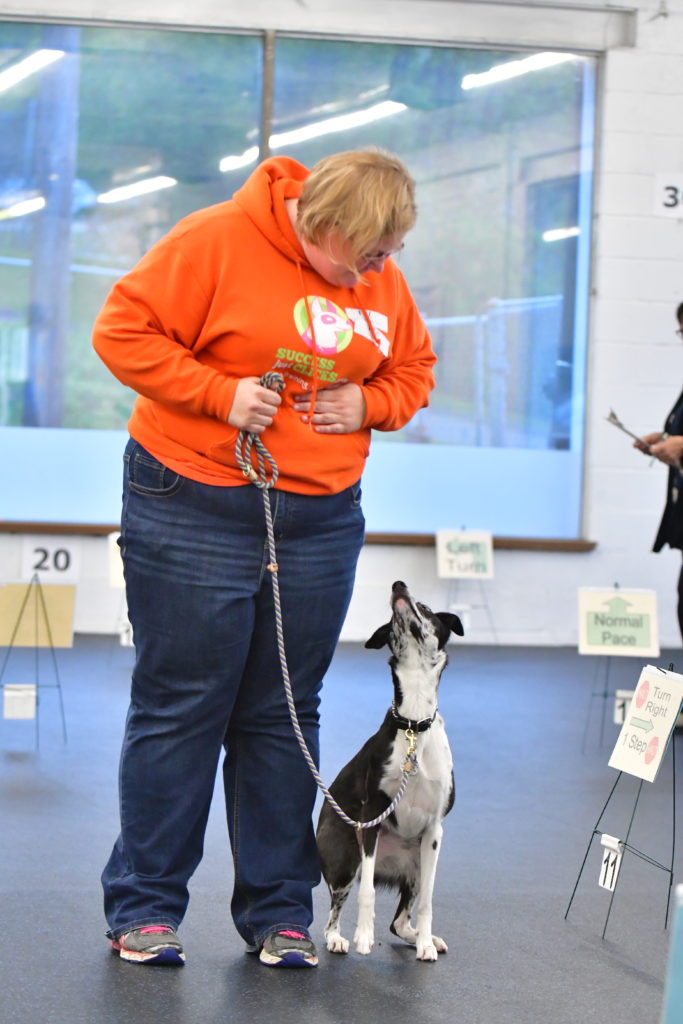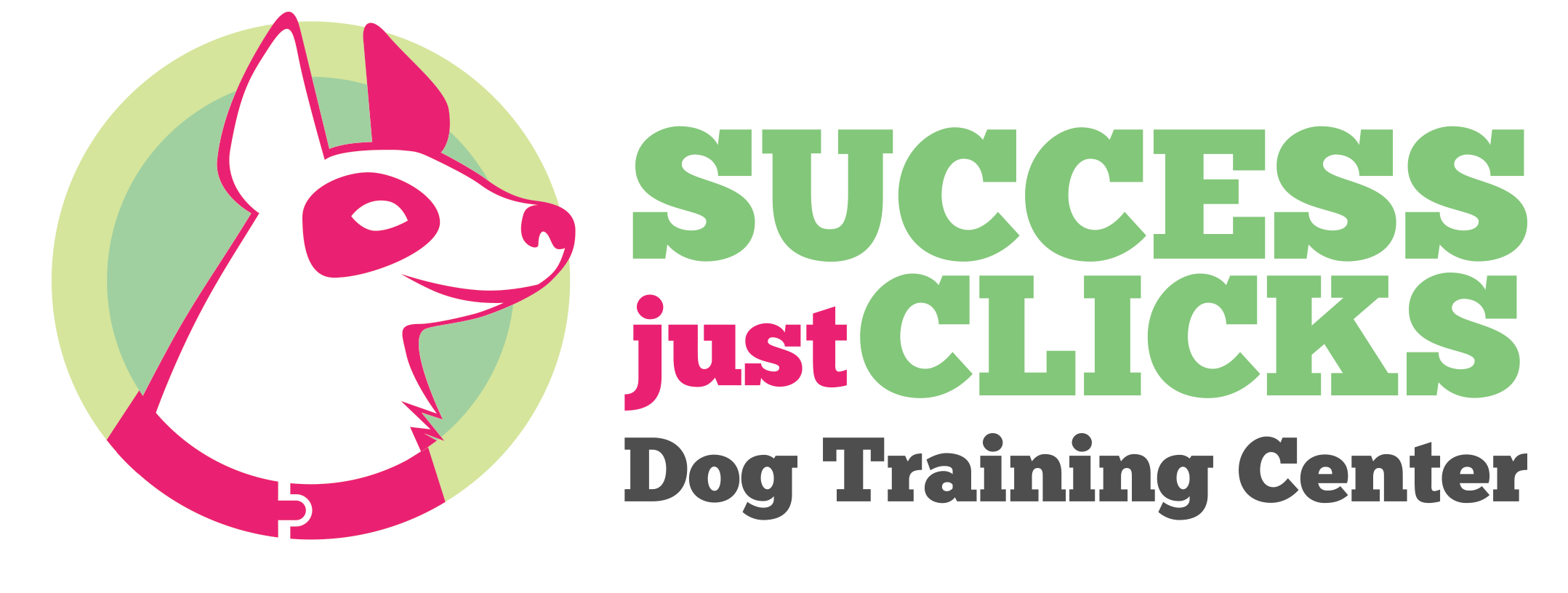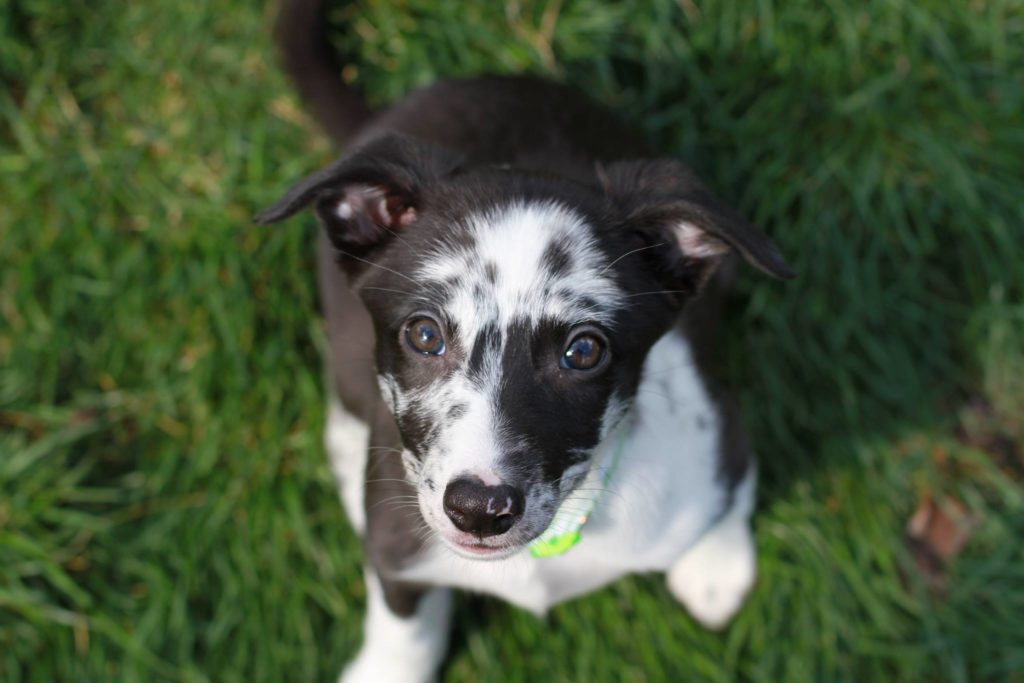Reflecting on Raising Oswin
Raising puppies is hard–plain and simple. It takes an incredible amount of work to simply raise a well-adjusted dog, but when you are looking to raise a performance dog and a working dog, the stakes are that much higher and the work that much more daunting.
Knowing how much there is to be trained, how much there is to be worked on, and where I wanted us to be as a team in the long run was overwhelming at times. I felt the pressure (from some unknown source) to make sure the puppy of a trainer was advanced and highly trained, even as a young dog.
I very seriously struggled with the game plan I wanted to follow with her because of the pressure I felt to do more (the pressure didn’t come from a specific source, but was more likely from my perception of what I thought others would expect from a trainer’s dog). I had many minor breakdowns, guilty moments, and questioning of my game plan over the last year and a half.
When I brought Oswin home 16 months ago, my game plan was always to go slow with her. I wasn’t worried about rushing into anything–what I’d seen from both Shayne and Rio (and many of the performance and working dogs I knew) was that the were really ‘in their prime’ from like 3-8 years old (roughly). It seems like for many dogs their brains and their bodies develop a bit differently but this is a bout when things start to mesh really nicely (the mental and physical capacities are peaking at the same time). With that in mind, I knew I didn’t need to and didn’t want to rush my puppy and over-train her during her puppyhood. I wanted to focus on building a really solid relationship, solid socialization, learning how to learn, learning house rules/routines, and simply being a dog!
At 6 months old, I could count the number of skill she had on cue on one hand–she could sit on cue (no joke, not until 6 months old was this on cue), she had a pretty reliable recall, she could reliably lay on her mat when it was presented, and she could drop/out. That’s it. She offered many many other skills and we had a lot of other concepts of behaviors, but nothing else on a cue and certainly not reliable. Down? Nope, not on cue outside the mat and routine for dinner. Stay? Nope. Hadn’t even started that (*truth, we STILL don’t have a real stay… we have a pretty solid cue but it’s not trained the way I want to really teach a stay). We did a few drop in puppy agility classes (totally appropriate handling skills) and I was super embarrassed when they expected my puppy wuppy to have a lead out. I told them that wasn’t a skill she had yet and I won’t forget the shocked and confused look the instructor gave because she knew I was a professional trainer.
I knew my game plan of not over-training my puppy was a solid plan, but I second guessed myself over and over and over again. While some dogs her age were starting to compete in Rally-O or earning there CGC, there was my puppy goofing around and offering all sorts of behaviors, but very few on cue. She was a focused and solid worker… but I could not ask her to do many behaviors.
She had perch work foundations for heel (and in turn both finishes), had been working on positional understanding of front, had worked on agility handling basics (pick up hands, wrapping cones, and toy play), chin rest, settling on a mat, impulse control (zen games, cookie jar games, and it’s yer choice games out the whazoo), and various shaping games. Those skills were like unrelated puzzle pieces–sometimes I struggled to trust my instinct that in the long run, those pieces would indeed come together.
Over the last few months Oswin has taken a jump foundation online class, a precision heeling class, and is just starting an in-person agility class… and my “don’t over train your dog” plan is really coming together. All of the seemingly unrelated foundation concept skills that we never had cues for have been crucial for these classes and all the new skills she’s learning! Because of the seriously strong foundation we built together, our progress has been surprisingly fast with all of these new skills! Even though at 6 months old, many other dogs appeared to have more skills on cue (not necessarily precise or as solid as I would want them), she has pretty much caught up, and in some respects surpassed peers.
This really fast progress as we start to piece together those foundation skills, has really reinforced my plan from the get go. Although it was hard, and I second guessed myself over and over again, felt extremely guilty about not doing enough skills training, and beat myself up over not doing right by this amazing puppy that I had, my take it slow game plan has absolutely paid off. She has the mental and physical abilities now to really narrow down the precision skills, get other things on cue, and start putting together all the pieces to do awesome things in the sports we want to play and the work I need her to do.
While I didn’t always trust it, I knew that over-training my puppy was not what I wanted to do and knew that it would ultimately lead to a better working dog. Having seen things through, I know I will be easier on myself for the next puppy because taking it very slow to start and letting them be puppies, focus on building relationship, and teaching them how to learn will pay out in the end!
I really learned to not be so hard on myself, to trust myself, and to trust my dog!

We have taken our time to build solid foundation skills but all of those things are quickly coming together for Oswin, PSF The Impossible Girl, RLPX, RL1, NTD, ITD, CGC. She recently earned both her Novice and Intermediate trick dog titles to add to the alphabet soup!
If you are interested in raising a performance/working/competition puppy and want to get started with training feel free to contact us! We do offer private lessons and group classes (appropriate for dogs of a wide range of age) and can help you and your adult dog or puppy get started!

